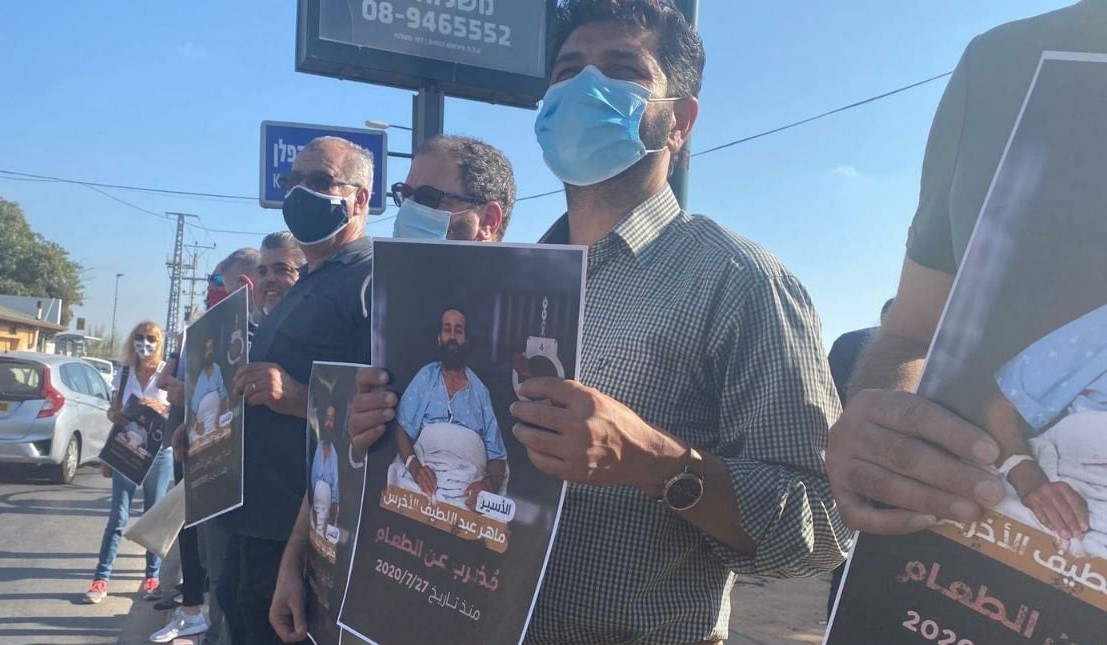Members of the public held solidarity vigils on Wednesday, October 14, with Palestinian political prisoner Maher Al-Akhras, then in the 83rd day of his hunger strike, and who doctors say may die at any moment. Vigils took place at the Kaplan Medical Center in Rehovot where Al-Akhras is hospitalized in an intensive care unit and in Jerusalem, Haifa, Beer-Sheva and Nazareth. Al-Akhras reports hearing a roaring noise in his ears, suddenly losing his eyesight at times, and groans and closes his eyes in pain due to severe headaches when he attempts to speak.

Protestors hold a solidarity vigil with Palestinian political prisoner Maher Al-Akhras outside the Kaplan Medical Center, Wednesday, October 14. Among those participating in the vigil were two prominent members of the Communist Party of Israel, former Hadash MK Mohammed Barakeh, head of the Higher Arab Monitoring Committee (wearing a black mask) and Hadash MK Ofer Cassif (to the latter’s left, wearing sunglasses and a light blue mask.) (Photo: Al Ittihad)
Al-Akhras, a 49-year-old father of 6 from Silat Ad-Daher town, south of Jenin, began his strike after he was arrested by the Israeli army in late July and placed in administrative detention. In 2018 Al-Akhras was diagnosed as suffering from hypertension, and following two and a half months of not eating, his medical condition is severely compromised from significant weight loss.
“He is in immediate, fatal danger. People who begin hunger strikes and drink nothing but water for days on end begin to die around the 75th day,” Physicians for Human Rights staffer Anat Litvin, who specializes in prisoners’ rights, told The Times of Israel. “According to international law, administrative detention is an extreme tool. However, Israel makes widespread use of it against Palestinians. It prevents many from having a normal life — people go in and out of detention for years, without any charges being submitted against them,” Litvin said.
At the end of August, 355 Palestinians were being held in Israeli prisons under administrative detention orders, including two minors, according to the Israeli human rights organization B’Tselem. While Israeli courts theoretically have oversight over administrative detention, in practice it is rare for them to nullify a prisoner’s detention outright. According to B’Tselem, out of 3,909 administrative detention orders issued between January 2015 and July 2017, only 1.2 percent were canceled by the courts.
Related: Doctors Warn: Palestinian Prisoner on Hunger Strike Is at Death’s Door


